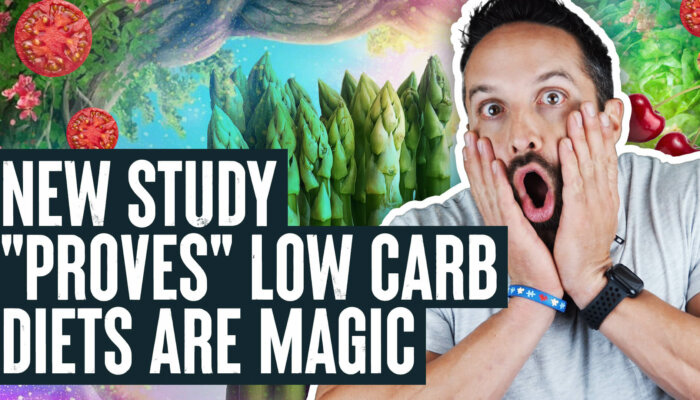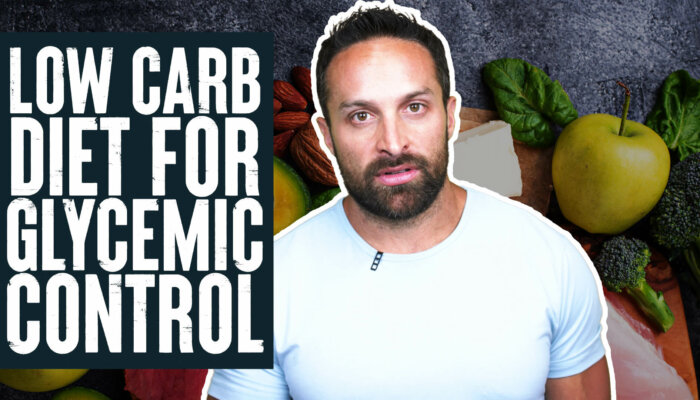Nutrition headlines were recently shaken up with a paper authored by several noted Low Carb Proponants (David Ludwig, Gary Taubes, etc) was published in the American Journal of Clinical Nutrition Link:
https://academic.oup.com/ajcn/advance-article/doi/10.1093/ajcn/nqab270/6369073
This paper was a narrative review (ie opinion piece) regarding the Carb-Insulin Model (CIM) of obesity and it’s many criticisms. While this opinion piece received a lot of press, it STILL did not address the core criticisms of the CIM, nor does it change the overwhelming evidence against the CIM.
Briefly: The CIM argues that overeating is NOT what makes people fat. Rather that high glycemic carbohydrate consumption, leading to elevated insulin levels, traps fat in adipose tissue. This trapping of fat causes fuel to be less available to the rest of the body, and people overeat in response. In other words, we don’t get fat because we overeat, we overeat because we get fat.
Intriguing theory (read: CONVOLUTED) but it is NOT supported by a plethora of data.
In this video I directly address Ludwig & colleagues claims regarding energy balance and their claims regarding the CIM
Fat loss is not different between low carb or low fat diets during controlled feeding studies when calories/protein are matched:
https://pubmed.ncbi.nlm.nih.gov/28193517/
Protein and carbohydrate have a greater thermic effect of food than fat:
https://pubmed.ncbi.nlm.nih.gov/31021710/
Inadequate caloric intake causes stunted growth in children:
https://pubmed.ncbi.nlm.nih.gov/22025919/
Dietary carb & sugar intake has DECREASED over the last 2 decades while obesity has continued to rise:
https://pubmed.ncbi.nlm.nih.gov/25623085/
https://www.ers.usda.gov/data-products/food-availability-per-capita-data-system/
https://pubmed.ncbi.nlm.nih.gov/23676424/
https://www.ncbi.nlm.nih.gov/pmc/articles/PMC4175294/
Dietary Fats are the biggest contributor to increased caloric intake over the last 50 years:
https://www.pewresearch.org/fact-tank/2016/12/13/whats-on-your-table-how-americas-diet-has-changed-over-the-decades/
Our caloric intake has increased by ~25% over the last half century and oil intake alone accounts for over half of the increased calorie intake:
https://www.businessinsider.com/american-calorie-intake-last-52-years-diet-food-eating-increase-science-2017-6
Differences in glycemic load do NOT affect weight loss/gain when calories are equated:
https://pubmed.ncbi.nlm.nih.gov/29466592/
https://pubmed.ncbi.nlm.nih.gov/15277154/
https://pubmed.ncbi.nlm.nih.gov/9094871/
https://pubmed.ncbi.nlm.nih.gov/11093293/
https://pubmed.ncbi.nlm.nih.gov/11477496/
https://pubmed.ncbi.nlm.nih.gov/9094871/
https://pubmed.ncbi.nlm.nih.gov/22866961/
Sugar does NOT cause fat gain unless also accompanied by an increase in calories:
https://pubmed.ncbi.nlm.nih.gov/23321486/
Low Carb Diets do not cause more weight loss than low fat diets when calories and protein are equated:
https://pubmed.ncbi.nlm.nih.gov/16685046/
https://www.ncbi.nlm.nih.gov/pmc/articles/PMC6893678/
https://pubmed.ncbi.nlm.nih.gov/27385608/
https://pubmed.ncbi.nlm.nih.gov/25007189/
https://pubmed.ncbi.nlm.nih.gov/26768850/
Insulin levels do not appear to predict future weight gain:
https://pubmed.ncbi.nlm.nih.gov/17130851/
Insulin secretion explains between 1-10% of future weight gain (though this has not been supported by other mendelian randomization studies):
(1-10%)
(no effect)
My previous video critiquing Ludwig’s meta-analysis claiming low carb diets increase energy expenditure:
https://youtu.be/xGy2O5gzGpU
The Doubly Labeled Water method overestimates energy expenditure for low carb diets:
https://pubmed.ncbi.nlm.nih.gov/31028699/
https://pubmed.ncbi.nlm.nih.gov/31815947/
Other critiques of of the CIM
Inhibiting fatty acid release from fat cells does NOT impede weight loss:
https://pubmed.ncbi.nlm.nih.gov/26691888/
Semaglutide increases postprandial insulin secretion by 2-3 fold but DECREASES fat mass:
https://pubmed.ncbi.nlm.nih.gov/28526920/
https://pubmed.ncbi.nlm.nih.gov/29766634/
Overfeeding carbohydrate or fats are both equally fattening in humans:
https://pubmed.ncbi.nlm.nih.gov/7598063/
https://pubmed.ncbi.nlm.nih.gov/11029975/
A diet of primarily rice, sugar, and fruit juice was able to cause over 100 lbs of weight loss in obese type 2 diabetics in a calorie deficit:
https://pubmed.ncbi.nlm.nih.gov/1200726/


